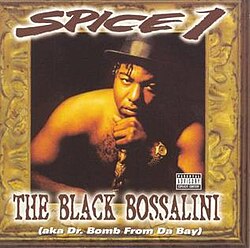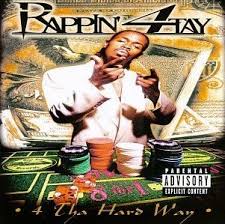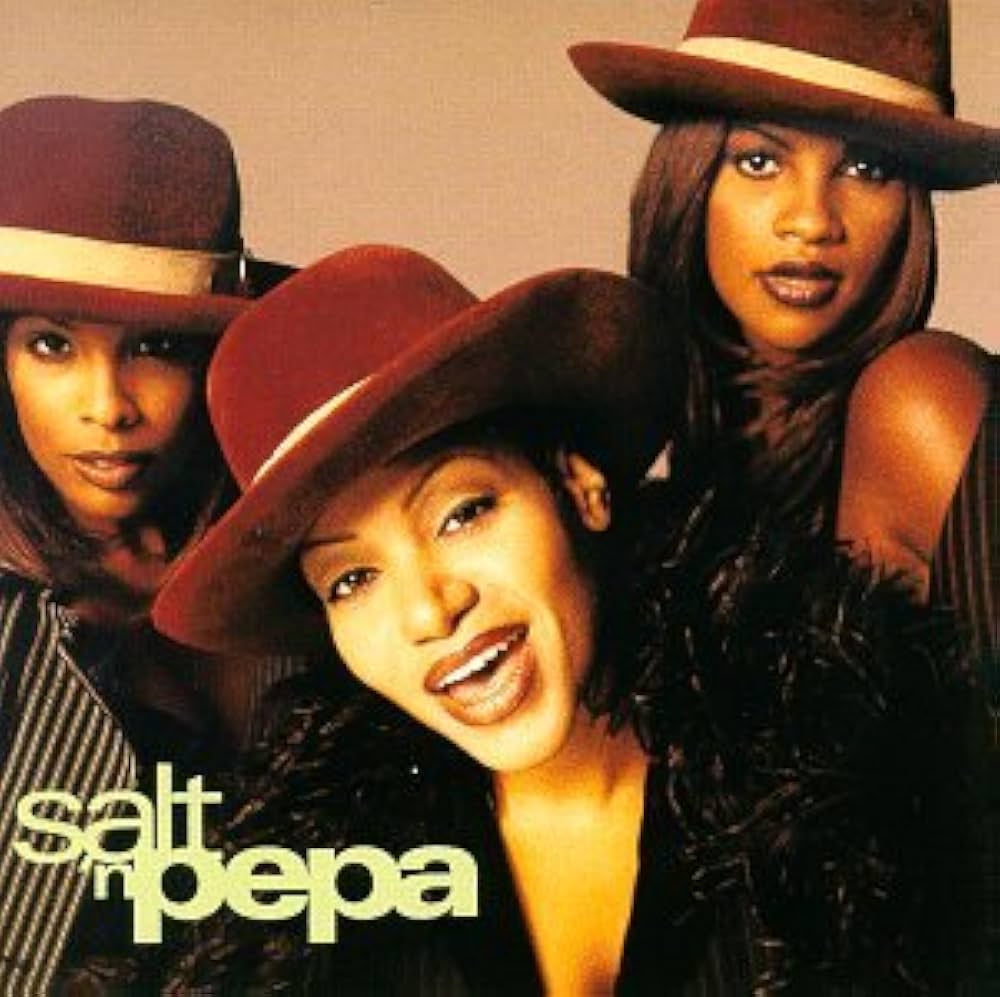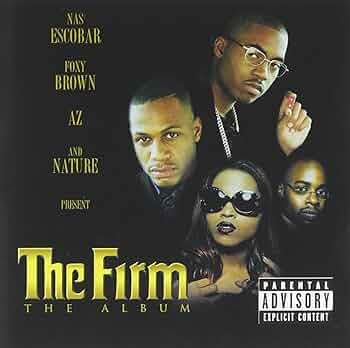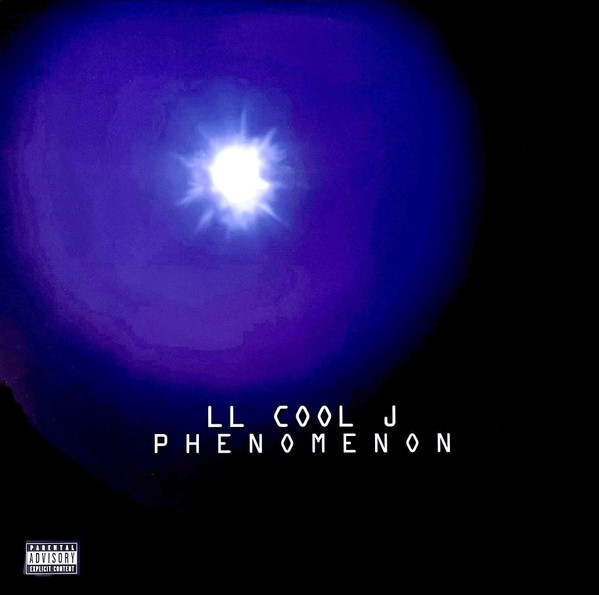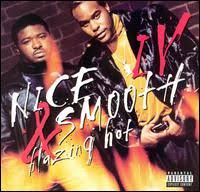
The last time we checked in with Nice & Smooth here at TimeIsIllmatic was for their third album, Jewel Of The Nile, released in 1994. Jewel was the duo’s second and last project released under the Def Jam affiliate label, Rush. Unlike its predecessor (Ain’t A Damn Thing Changed), Jewel didn’t have any signature singles and went relatively under the radar, which might explain why they and the label parted ways after its release. After a three-year hiatus, Nice & Smooth would return with their fourth release, IV: Blazing Hot.
IV was released on Street Life Records, the same label that gave us Craig Mack’s Operation: Get Down and the Laylaw compilation album, The Lawhouse Experience. Greg Nice handled most of the production duties on Nice & Smooth’s first three albums, but only receives credit for two of the twelve tracks on IV. The duo would call on the likes of Kid Capri, Easy Mo Bee, Mark Sparks, and a few others to provide the instrumentation this go round. Like its predecessor, IV came and left without a trace like a John bustin’ off in a hooker’s mouth. It is also the last time Nice & Smooth released a project together.
I’m a Nice & Smooth fan, but I have to be honest: none of their first three albums were great bodies of work. They all had bright moments, but also included some dim spots and shoddy production, hindering the overall product. This is my first time listening to IV since it found me while I was digging through the used CD bins at Cheapos several years ago. Hopefully, after three rounds of trial and error, the duo makes the proper corrections.
Blazing Hot – The show begins with looped buttery bass guitar strums placed over competent drums, and Greg Nice’s sampled voice urging the listener to “Get the album, cassingle, CD, and tapes” (all courtesy of Kid Capri). Greg Nice bats first and spews one of his vintage, fun, off-the-top-of-the-dome-esque verses, followed by a cool, calm, and perfectly packaged paragraph from Smooth B. Two verses, a call-and-response hook, and our hosts get the fuck out of Dodge at the two-and-a-half-minute mark. Well done, fellas.
NY Intro – A quick snippet of a hyped male voice instructs a New York crowd to make some noise, and the crowd obliges. This bleeds directly into the next song.
Boogie Down Bronx / BK Connection – Nice & Smooth reps for The Bronx as they invite their Brooklyn bredrin, Rappin’ Is Fundamental, to join them on this inter-borough cipher session. If you’re not familiar with Rappin’ Is Fundamental, they were a three-man team (Easy Mo Bee, AB Money, and JR the Stone Cold Lover) that called their style “doo-hop” because they mixed rhyming with harmonies, which today is just called hip-hop. AB and JR showcase a little of this fusion while Mo Bee drops a few bars and provides the hypnotizing groove (Greg Nice’s catchy hook makes the already dope instrumental sound even better). RIF’s performance was passable, but I would much rather have their mic time replaced with more Nice & Smooth bars.
I’ll Be Good To You – Michelob (whose name I became familiar with for the solid “freestyle” he spat on Funkmaster Flex’s 60 Minutes Of Funk Volume II) sprinkles spotless, warm, and tender R&B vibes all over this track. Love is in the air, as Greg Nice dedicates his verse to all the single mothers and his mom-dukes, who raised Greg without a father. Smooth B sounds like a slick Casanova running game on a chick who’s clearly scorned from her previous relationship (his game includes a little dirty mackin’ as he talks down on her ex), but maybe he has good intentions. The duo invites a male vocalist named Josiah to croon on the hook in an attempt to expand the Nice & Smooth female fan base. I’m not sure if the ladies liked this record, but I enjoyed it.
Let It Go – This is the Yin to the previous track’s Yang. Rich Nice loops up Brenda Russell’s “Piano In The Dark” to create a somber mood for our hosts to discuss the heartache and pain of walking away from love when you know the relationship is no longer good for you (or, in the case of Greg Nice’s last scenario, walking away from love and the crack rock). Cool concept, but I hate the chunky drumbeat placed underneath the sad sample.
Lockdown – This is pretty much a Greg Nice solo joint. Greg provides the vibey hook, and besides a quick eight bars that Smooth B sounds reluctant to spit (with three of the eight getting interrupted by Greg Nice), he does all the rhyming. The fellas sound decent enough on the mic, but the soulfully jazzy vibes in Paul Pistachio’s backdrop do the heavy lifting on this track.
Scared Money – The song title comes from the old financial investment adage: “Scared money doesn’t make money,” which means that if you’re not willing to take some investment risks with your money, it’ll be hard to grow wealth. Based on Nice & Smooth’s verses, I don’t think they fully grasp the meaning of the term, or they just completely lost focus on it when writing their rhymes for this song. I’ve always thought Aaron Hall sounded like Charlie Wilson, but he sounds like a Stevie Wonder clone singing the ad-libs and hook on this record that I never need to hear again.
Hot Shit – The horn loop gives the instrumental an aristocratic feel, and Smooth B must have shared my sentiment as he starts his verse off claiming to be “royalty.” Solid album cut.
Mad Love – Cool rhymes from our hosts, but Greg Nice’s boring beat almost lulled me to sleep.
Same Old Brand New Style (I Can’t Wait) – Thanks to Puffy and his Henchmen, I mean, Hitmen, sampling eighties pop hits became a thing in the mid-nineties. Sean Devereaux loops up the one-hit wonder, Nu Shooz’s “I Can’t Wait” for the backdrop that Greg Nice and Smooth B use to talk more slick shit over (Smooth B gets off what might be the funniest bar off the album with “I smoke chunky, I’m no flunky, my lyrical flow will knock needles out of junkies”). The record makes for decent filler material, but the guest vocalist singing the hook (Bernard Wright) sounds like he drank a fifth of Hennessy before he hit the recording booth.
Busta Rhymes Intro – Greg Nice calls Busta up on stage at a live show, and he showers N&S with kind words for their contribution to the genre. This leads directly into the next track.
DWYCK Live – It plays exactly as it reads, minus Guru’s verse (RIP), Smooth B being completely out of breath, and Greg Nice blasphemously replacing “Premier” and requesting that “Holiday” take them out with the fader. “DWYCK” is an all-time classic record, but there’s absolutely no reason this subpar performance should have been placed on the album.
In the late 1950s, a French electrician named Andre Cassagnes created a toy that placed aluminum powder in a red plastic frame with a flat screen and two knobs on the bottom of the frame that moved a stylus to write and draw on the screen. He originally named the invention L’Ecran Magique (French for “The Magic Screen”), but once the Ohio Art Company introduced it in the U.S. in 1960, it became known as the Etch A Sketch. The Etch A Sketch became a massive success, selling over 100 million units and earning a spot in the National Toy Hall of Fame in 1998. Six decades later, it remains a source of joy and entertainment for young kids, which is extremely impressive considering its simple design has remained virtually unchanged and continues to compete in a market flooded with technologically advanced toys. The Etch A Sketch is proof that staying steadfast and focusing on the fundamentals while most of the world is looking for the next hot trend can pay off. Nice & Smooth is hip-hop’s version of the Etch A Sketch, only way less successful.
Nice & Smooth’s names are seldom mentioned in the conversation for best hip-hop duos. And they might not be the best, but what they do together on the mic is severely underappreciated. The same formula they came in the game with in 1989 lives on for IV. Greg Nice consistently delivers animated, random one-liners in his cartoonish vocal tone that keep you amused, and his basic but effective call-and-response type refrains are the backbone to almost every record on the album (During “Hot Shit,” Greg even refers to himself as “the man with the hooks”). Smooth B plays Greg’s faithful and content wingman. He always lets his partner set things up with the hook and the opening verse before getting off his neatly packaged, well-articulated, simple yet potent bars, all delivered in his signature regal storytelling tone. None of the duo’s content is conceptually high-tech or complex, but their mastery of the fundamentals is entertaining to listen to for most of the project.
While Nice & Smooth’s chemistry and fundamentally strong brand of emceeing have always been intact, inconsistent production has plagued their catalog. Even with Greg Nice relinquishing most of the production duties, the inconsistencies remain on IV. There are three undisputed musical gems (the title track, “Boogie Down Bronx/BK Connection,” and “Lockdown”), but most of the rest fall into the decent category, with one very dull moment (“Mad Love”).
Unlike the Etch A Sketch, Nice & Smooth were unable to translate their sturdy fundamentals into 100 million units sold, but to their credit, not many rappers have accomplished that feat. Still, the duo’s fourth (and at this point, probably, final) outing is not a terrible listen. But it’s more simmering lukewarm than blazing hot.
-Deedub
Follow me on Instagram @damontimeisillmatic

